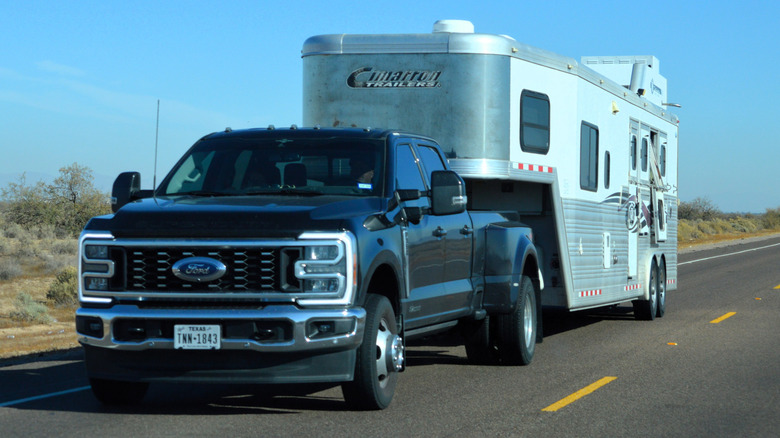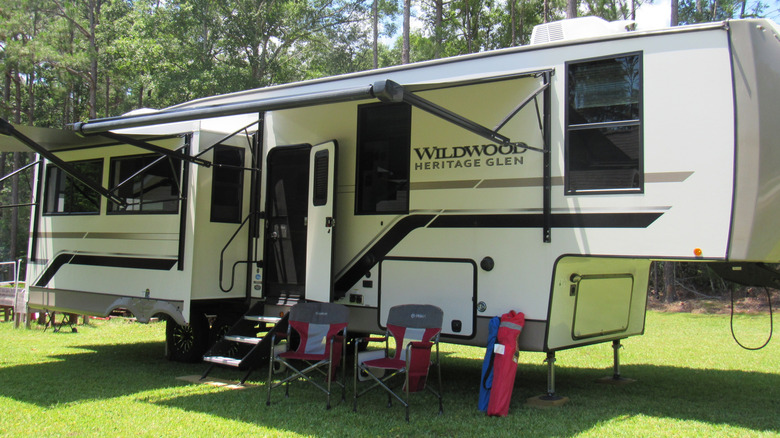Why Are Some Trailers Called Fifth Wheels?
Recreational vehicles, better known as RVs, typically come in two primary flavors: the all-in-one vehicles that can travel entirely under their own power, and trailers that need to be towed by a regular car or truck. In the latter case specifically, certain types and brands of travel trailers that are hauled around by tow hitches are occasionally referred to as "fifth wheels" by camping and RV enthusiasts.
It's not immediately clear how a large camper trailer would get a nickname like "fifth wheel." Camper trailers typically have two to four wheels to facilitate safe hauling, which adds up to either six or eight wheels when added to your car's. Either way, there's definitely more than five wheels in the mix. As it turns out, the "fifth wheel" name actually has nothing to do with the number of actual wheels on your car or the camper trailer. Rather, it's a reference to a particular kind of hitch that was used in motorized carriages all the way back in the early 1900s.
The name is a reference to a round hitch used by motorized carriages
In the earliest days of vehicular hauling, as far back as the early 1800s, getting cargo to stay steady on then-unpaved roads was no easy feat. While cargo could be hitched to the back of early carriages, the stiff connection put additional stress on the hinges, which would ultimately result in them breaking down. Gradually, though, enterprising individuals realized there was a better way. Experimental versions of new hitches started popping up in the 1850s, though it would be around the turn of the century that the practice became more standardized.
Circa-1915, inventors Hermann Farr and Charles Martin invented a new kind of hitch for trucks, one that incorporated a rotating wheel in its design. This wheel allowed the cargo to safely rock back and forth on a bumpy road without actually damaging the vehicle or its components. The inventors named this hitch the fifth wheel, and together, they formed the Martin Rocking Fifth Wheel Company, which would go on to become a chief dealer of hitches for the newly-established semi-trucking business.
That brings us back to the camper trailers of the present. Modern camper trailers are attached to a truck via a hinged, U-shaped hitch. While it's not exactly the same design as the fifth wheel hitch, the basic concept is the same, allowing the trailer to safely sway and pivot without damaging the vehicle. Thus, camper trailers are called fifth wheels in honor of that revolutionary development, and the name is still used for some of the coolest camping RVs ever made.

